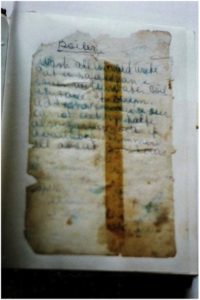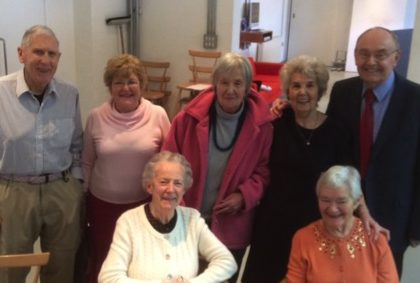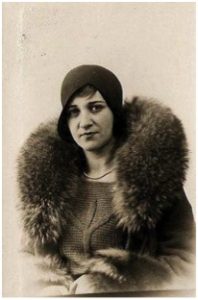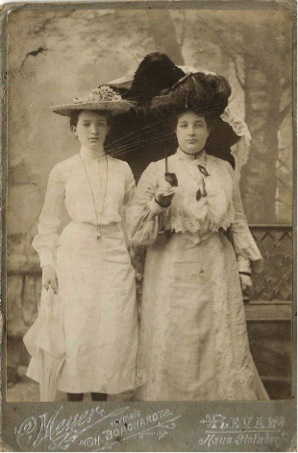It was in the hope of publicising my book that I submitted a piece to Saga Magazine for their ‘Humble Treasures’, a charming series (now defunct) in which old people, like myself, wrote a few words about some object for which they had special affection. In my case, it was a handwritten recipe for chicken soup.

What I hadn’t realised was that the pieces would not be published in their original form. At the photo shoot to which I and five other contestants had been summoned – a jolly occasion, as can well be imagined – there was a journalist present whose job it was to interview us, rather in the manner of In the Psychiatrist’s Chair, and then re-write our stories in her own words. These then appeared, under our names, nice and big, along with the barely visible by-line: As told to Moira Petty.

Although – and with good reason, as it turned out – I was fearful of what the accompanying photo would be like: we had all been photographed along with our treasures – a locket and a pair of hiking boots among them – I wasn’t worried about the text, as Moira had been punctilious in allowing me to vet it. But I should have been. For not only had some meddlesome person made unwelcome changes, he or she had also misspelt my name. ESTHER MENNEL reads the banner headline above the miserable photo and the mangled text.
Here, then, on a day when I am again feeling a bit under the weather, and in memory of my mother and my grandmother, is the piece I sent to Saga Magazine for its Humble Treasures series, in its original form and with its original title.
JEWISH PENICILLIN
The other day I was feeling a bit off-colour and did what I always do if I feel I am headed for a few days in bed: I asked my husband to go and get the best chicken he could find (no chicken these days gives you the wonderful thick schmaltz that I remember from my childhood) and on his return, with the chicken and the carrots and the onions and the parsley, I set about making several days’ worth of Chicken Soup. I don’t, of course, need the recipe but I still like to keep in front of me this, in my mother’s handwriting, is how it reads.
BOILER
Wash all in cold water. Put
in sauspan and cover with water. Boil up, take of scum.
Add one onion and one carrot
cut up halfe, also parsley-
rooth if available. Simmer
all about 3–3½ hours.As you can tell, English was not my mother’s native tongue. That had been Russian, but Russian had been abandoned when we arrived in England in 1939.
The recipe (which must originally have been in Cyrillic script) was sent to my mother by her mother – left behind in what was thought to be the safety of her home in Tallinn. Less than two years later, in July 1941, the Germans invaded Estonia, and my grandmother was murdered.
Thus does this recipe remain a precious talisman of times long past and I was delighted when the nice Irishman who comes to help in the garden found me making that batch of chicken soup the other day and said, oh yes, he knew all about the magical properties of ‘Jewish Penicillin’.
It seems that good things never die.
That scrap of aged paper, together with the leather-bound volume of faded photographs, from which these images of my mother and grandmother have been carefully lifted, are more precious to me than diamonds.

My mother, who had never had to cook before the War.

My grandmother Helena Banker (holding the parasol) with her sister Adele, taken in Lodz, where they were born.
But nothing could equal in poignancy the worn little teddy brought along by another lady in our group: it had been pinned to her gown when she was found abandoned on the steps of an orphanage. Treasures indeed.